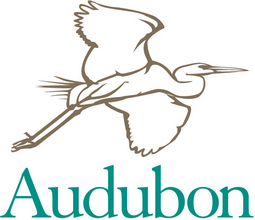Situated on the Atlantic Flyway, Pennsylvania provides critical stopover and nesting habitat for hundreds of bird species, including dozens in decline and/or at serious risk from climate change. Audubon Pennsylvania (APA) is a state program of the National Audubon Society, and focuses on establishing statewide conservation and education programs while independently pursuing local funding to support these efforts. APA, with a staff of 21 full- and part-time professionals, is poised to fulfill significant elements of National Audubon Society’s strategic plan to conserve birds and habitats at scale. The work of Audubon Pennsylvania is grounded in science, education, policy, and on-the-ground conservation with more than 30,000 members and 21 Chapters. APA programs include the John James Audubon Center at Mill Grove, the Discovery Center in Philadelphia, and the Waggoner’s Gap Hawk Watch in Carlisle. Adding to activities are programs across central Pennsylvania and Important Bird Area projects throughout the state, with a significant presence in the Kittatinny Ridge area of eastern and central Pennsylvania. Audubon Pennsylvania is based in the village of Audubon at the John James Audubon Center at Mill Grove, with offices in Harrisburg.
Audubon Pennsylvania is developing a robust forest program that includes working with private landowners and public land managers in the forested landscapes in the north-central and western regions of the state to implement forest management practices to enhance habitat for priority birds. Reporting to the Deputy Director, Conservation and Engagement, the Forest Program Manager will be charged with leading forest protection and stewardship efforts, with a focus on key-forested landscapes in the north-central and western regions of the state, as part of Audubon’s Healthy Forests initiative. This position is responsible for leading the efforts to achieve expected outcomes in a grant received from the National Fish and Wildlife Foundation’s Central Appalachia Habitat Stewardship Program. Additionally, s/he will design and conduct education and outreach programs targeting forest owners and managers, both public and private, to promote sustainable forest management techniques that create habitat required by priority forest bird species (Prairie Warbler, Golden-winged warbler, American Woodcock, Black-throated Blue Warbler, Cerulean Warbler, and Wood Thrush). The Program Manager effectively trains foresters on bird-friendly management practices; conducts field assessments; and consults with forest land owners and managers on management plans for their properties. S/he collaborates with Audubon staff from NY and other states in the Atlantic Flyway, as well as with partner organizations that share Audubon’s forest conservation objectives. In addition, the Forest Program Manager will work with and advise Audubon Pennsylvania’s Executive Director and Deputy Director of Conservation & Engagement in the pursuit of policies and programs that promote and support our forest conservation goals.
The National Audubon Society has completed a Strategic Plan and Audubon Pennsylvania is in the process of finalizing a complementary state implementation plan. Forest focus areas have been identified throughout the U.S. portion of the flyway, with a long-term goal of increasing the proportions of those areas that are protected from conversion to non-forest uses and managed in ways that are compatible with the habitat needs of priority species.
- Develop decision-making framework to help forest managers identify treatments in specific situations that benefit target bird species.
- Develop training program for foresters to increase their understanding of integrating silviculture and forest management for birds.
- Develop, plan, and deliver outreach programs, in collaboration with partners, to promote sustainable forest management that also helps create habitat required by priority bird species.
- Conduct workshops and outreach to private landowners, public land managers, foresters, and others.
- Conduct field site visits and assess properties and management plans in order to provide management options to improve bird habitat; and write habitat management plans.
- Serve as a leader and expert on forest management and forest bird habitat requirements in order to advise other Audubon Pennsylvania staff members.
- Collaborate with other Audubon staff in surrounding states on Healthy Forests projects.
- Enhance existing and establish new partnerships with state and federal agencies and NGOs.
- Provide technical review and develop comments on public land management as related to forest conservation.
- Work with land trusts, state and federal government agencies, and other conservation groups to achieve conservation results shared with Audubon’s forest program.
- Identify funding opportunities to further the forest program, and assist with writing grant proposals, developing grant reports and meeting with donors, as needed to support the forest program.
- Give public presentations and bird walks as related to the forest program.
- Assist with other project-related activities deemed necessary by Audubon Pennsylvania and partners.
- Perform other duties as assigned.
- 3-5 years of relevant professional experience. Master’s degree preferred and an equivalent combination of education and experience will also be considered.
- Strong knowledge of forest birds of Pennsylvania and their habitat requirements and the ability to identify all forest birds by sight and sound, as well as knowledge of forestry and forest management techniques that are employed in eastern forests.
- Ability to use GIS for conservation planning; proficiency with MS Office applications also required.
- Ability to traverse uneven and steep terrain in inclement weather.
- Must have a valid driver’s license and vehicle and be able to provide your own transportation.
- Must be results-oriented; success will be evaluated by number of forest owners and managers reached, number of foresters trained, and, ultimately, by acres of habitat properly managed.
- Excellent writing and oral communication skills.
- Able to work independently as well as part of a larger team in a dynamic fast-paced environment.
- Strong interpersonal and social skills with a positive attitude and good sense of humor.
- Passion for and commitment to the mission of the National Audubon Society.
- This position requires a self-motivated, independent, progress-driven individual who is capable of interacting extensively with private landowners and conservation partners.
- Must have strong social skills to work well with private landowners and maintain productive partnerships with agencies and other conservation groups.
